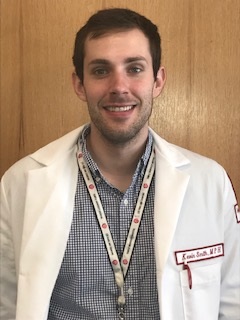The Future of Careers in Infectious Disease
August 11, 2022
The COVID-19 pandemic has highlighted the critical need for educational programs that train and support future infection preventionists.
Drexel’s Dornsife School of Public Health was prepared for this rapidly growing need even before the pandemic arrived, launching a graduate minor in Infectious Disease and Population Health in 2017 and adding a post-baccalaureate online certificate in Infectious Disease Prevention and Control in 2020.
The Graduate Minor in Infectious Disease and Population Health is available to graduate public health students in masters and doctoral programs at Dornsife and across Drexel University, and to students in Drexel’s graduate nursing and other programs. The minor provides an opportunity for students with an interest in infectious disease prevention to acquire skills needed for positions in public health agencies and healthcare settings.
The online Certificate in Infectious Disease Prevention and Control is designed for working professionals (such as nurses and physician assistants) who are interested in working in Infection Prevention and Control, or epidemiologists seeking expertise in infectious diseases and their control. Courses focus on fundamental content in infectious disease, epidemiology and surveillance, and patient safety.
New for 2023 is the Master of Science in Infection Prevention and Control, which is a fully online degree that offers well-rounded training in an ever-evolving field.
The Infectious Disease program is co-led by Esther Chernak, MD, MPH, FACP, a professor in the department of Environmental and Occupational Health, and Sarah Smathers, MPH, CIC, FAPIC, who is the System Director of Infection Prevention and Control at the Children’s Hospital of Philadelphia (CHOP).
Dr. Chernak is a board-certified infectious disease physician and the former program manager and medical director of the Philadelphia Department of Public Health Acute Communicable Disease Control Program.
Adjunct professor and certificate co-director Smathers is a member of the Association for Professionals in Infection Control and Epidemiology’s (APIC) Academic Pathway Steering Committee Smathers told Infection Control Today in regard to the minor program, “We have gotten some great feedback that people who have graduated from that program have gone on and been able to get positions in infection prevention and control.”
 Kevin Smith, MPH '18
Kevin Smith, MPH '18
Kevin Smith, MPH '18 with a minor in Infectious Disease Prevention and Control, was able to complete his Applied Practical Experience (APE) at Mercy Hospital in Philadelphia, providing infection control and prevention support. He credits his APE with helping him land a job after graduation at the Temple University Hospital as an infection control practitioner. “I was thrilled to have the chance to work in this field at a large academic medical center right after graduating,” said Smith.
The courses in both the minor and certificate emphasize case studies and applied learning.
Dr. Chernak describes these programs as “geared for public health and health care practitioners who need to prevent infectious diseases in real-world situations.”
Students can attest to the preparation that the programs provide: “Dr. Chernak’s Pathogens I & II classes were the most comprehensive courses I've had and the most impactful to my current position working with my local health department on the state's Covid-19 Contact Tracing initiative," said Sara Spear, a current Certificate in Infectious Disease Prevention and Control student who is working as a Health Department Covid-19 Contact Tracer.
"I am helping with disease investigation for communicable diseases and vector borne illnesses, and my colleagues have been impressed with the questions I've been asking and my knowledge of diagnostic methods/serology, which I attribute to my Pathogens classes,” said Spear.
The Infection Prevention field is facing crisis-level staffing shortages, creating myriad opportunities for those wanting to enter the field:
- A 2015 “MegaSurvey” by the Association for Professionals in Infection Control and Epidemiology (APIC) found that 41.6% of infection preventionists were 56 years or older, implying multiple retirements in the next 5-10 years.
- A 2019 survey of APIC members revealed that 52% of respondents anticipated that 1-2 infection preventionists would retire from their organizations within 5 years of the survey.
- A 2019 survey of APIC members revealed that respondents had a 25% vacancy rate. In 2019 the nursing vacancy rate was 9% and today is 17%.
- A survey currently in press by APIC and the Ohio State School for Nursing found that COVID-19 related stress and burnout have accelerated retirement timelines, exacerbating the staffing shortage.
 Elina Paul, MPH '19
Elina Paul, MPH '19
In addition to offering growing career opportunities, the field of infectious disease is collaborative and impactful. Elina Paul, MPH ‘19, had only been working in the Department of Infection Prevention and Control at Children’s Hospital of Philadelphia (CHOP) as an infection prevention associate for several months before the COVID-19 pandemic began.
“The best part about what I do is being able to be a public health professional in this time,” Paul said. “I can’t imagine experiencing [the pandemic] with any other team, honestly, because my team has been so amazing and so proactive. The work that we’re all doing is definitely important and meaningful."
Learn more about Infectious Disease programs at Drexel Dornsife